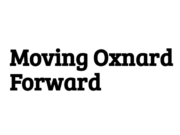Portland, ME — A recent change to Maine law creates an unfair and unconstitutional system that gives even more influence to the most powerful political leaders and curtails political speech rights for legislators and donors alike.
That’s why state Representative Laurel Libby and others, including would-be donors, are suing to overturn these restrictions, which violate the First and Fourteenth Amendments to the U.S. Constitution. The Institute for Free Speech represents the plaintiffs challenging the law and has now filed suit in federal court in an effort to restore equal speech rights for groups and individuals harmed by the new rules.
The law in question (21-A MRSA 1056-C) established low fundraising limits for political action committees (PACs) led by legislators, known as “leadership PACs.” Rep. Libby heads up two such organizations: The Dinner Table PAC, which provides a voice for Mainers who believe in principles of limited government, free enterprise, personal responsibility, and individual liberty, and The Fight for Freedom PAC, which supports candidates and causes that advance freedom in Maine.
The new law restricts leadership PAC contributions to just $475 per individual per year while also banning any contributions from business entities. These restrictions greatly limit the ability of leadership PACs to raise money to speak to the public about their issues. The limits also severely burden the right of would-be donors to support political causes.
“Laws that limit the amount of money a person may give to these committees intrude upon the First Amendment freedoms of speech and association,” said Institute for Free Speech Senior Attorney Charles Miller, co-counsel for plaintiffs. “These limits not only infringe on the rights of donors, but on the rights of advocacy groups and the people who operate them as well, including Representative Libby.”
But the problems with this law extend even beyond the First Amendment, as the new rules exempt traditional PACs and so-called “caucus” PACs from the contribution limits. What are caucus PACs? These are organizations that function like leadership PACs, but just happen to be run by four specific Maine legislators: the Speaker of the House, the President of the Senate, and the minority leaders in each house.
Thus, Maine’s contribution rules also run afoul of the U.S. Constitution’s Equal Protection guarantees of the Fourteenth Amendment, because, unlike nearly all other Mainers—including caucus leadership—the remaining 182 Maine legislators cannot found, direct, or maintain a PAC free of contribution limits.
The leadership PAC restrictions penalize legislators who lack leadership positions, including Representative Libby. These restrictions hobble her and most of her colleagues’ freedom to participate in the political process through PACs.
“These rules have already caused me to cancel events and turn down donations for fear of criminal sanctions. This law interferes with the right of Mainers to have their voices heard,” explained Representative Libby. “Speech rights shouldn’t be subject to the whims or approval of a tiny group of leaders. Everyday Mainers shouldn’t be limited in their ability to support a political cause based on which lawmaker leads that cause, and my colleagues and I should have the same right to speak and fundraise as House and Senate leaders do.”
This unequal treatment undermines leadership PACs’ capacity to engage in political speech and associate with others. In addition to this infringement on First Amendment rights, the two-tiered rules benefit the Democratic and Republican party leadership, who can continue to raise and spend unlimited funds from unlimited sources, while fundraising limits place other legislators—who may favor political ideas that differ with party leaders—at a massive disadvantage. The rules also make rank-and-file legislators even more beholden to the small, exempt cadre of party leaders.
These ill-conceived and unconstitutional limits must not stand. The lawsuit asks for an immediate injunction to prevent enforcement of these limits, as well as for the relevant provisions of the law to be declared unconstitutional.
To read the complaint in the case, Libby, et al., v. Schneider, et al., click here.
About the Institute for Free Speech
The Institute for Free Speech promotes and defends the First Amendment rights to freely speak, assemble, publish, and petition the government through strategic litigation, communication, activism, training, research, and education.














